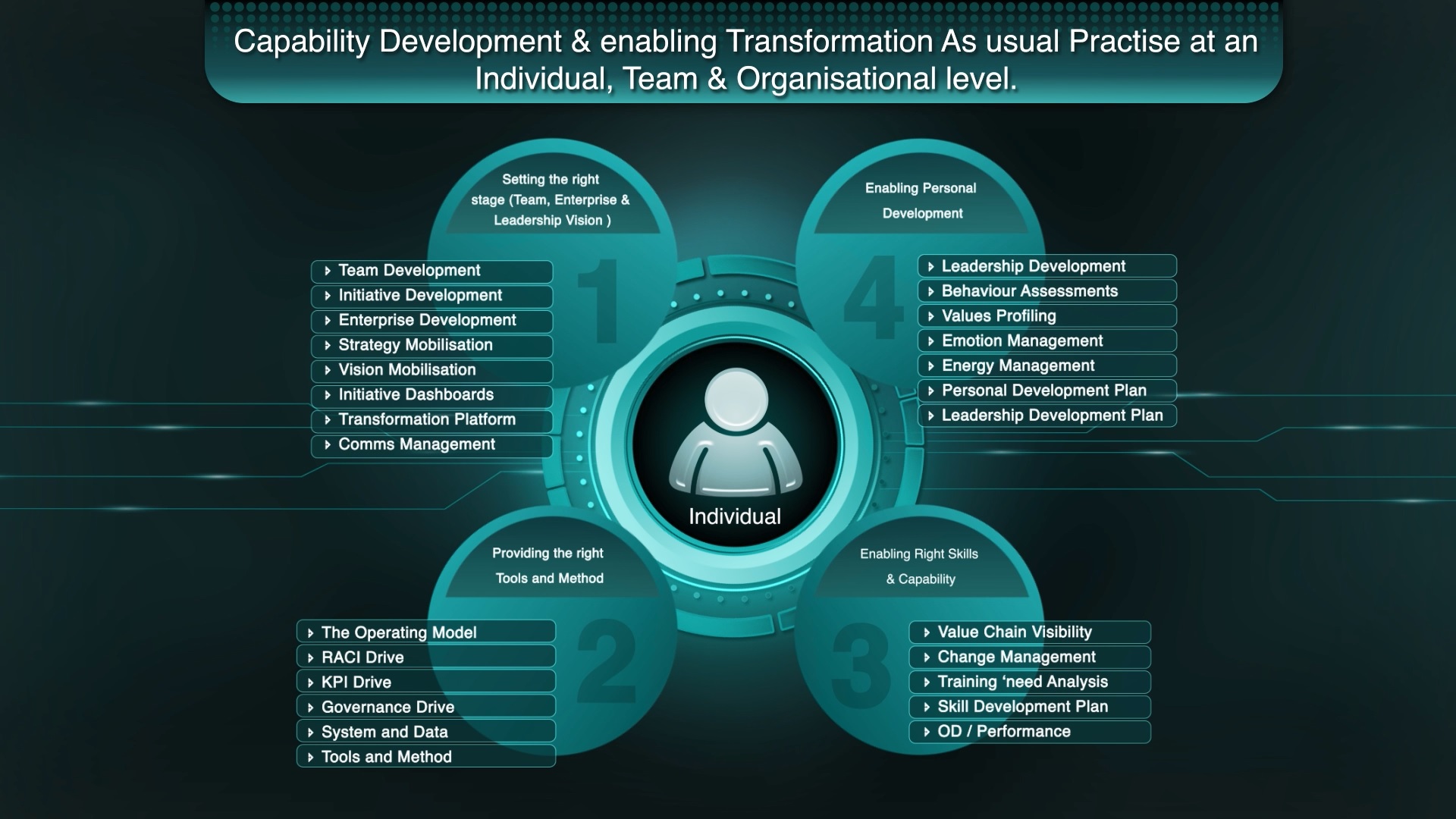Retail Chocolate – Enterprise Business Transformation
An Introduction To Our Retail Chocolate Platform
Modus Business Transformation Core Modules
Building, Driving and Sustaining your Business Transformation and embedding a 'Transformation As Usual' platform.
*01 - Business Model Management Hub in Modus ETP for Retail Chocolate Enterprises
Transform your Retail Chocolate enterprise with the Business Model Management Hub in Modus ETP. Adapt, optimize, and grow your business effortlessly.
Key Features:
• Business Model Canvas: Provides a comprehensive tool to design and
visualize the entire business model, capturing key elements like product
sourcing, production, distribution, and retail channels.
• Value Chain Integration: Maps the full value chain, from cocoa sourcing to
product distribution, identifying dependencies and areas for optimization.
• Scenario Planning: Enables testing of different business scenarios, such as
product launches, seasonal demand spikes, or supply chain disruptions, to
evaluate impacts and make informed decisions.
Benefits:
• Optimized Supply Chain: Streamlines the chocolate production and
distribution process, ensuring efficient sourcing, manufacturing, and retail
operations.
• Cost Efficiency: Identifies cost-saving opportunities in sourcing, production,
and logistics, reducing waste and improving profitability.
• Enhanced Agility: Quickly adapts to market changes, such as shifting
consumer preferences or ingredient shortages, ensuring the business
remains competitive.
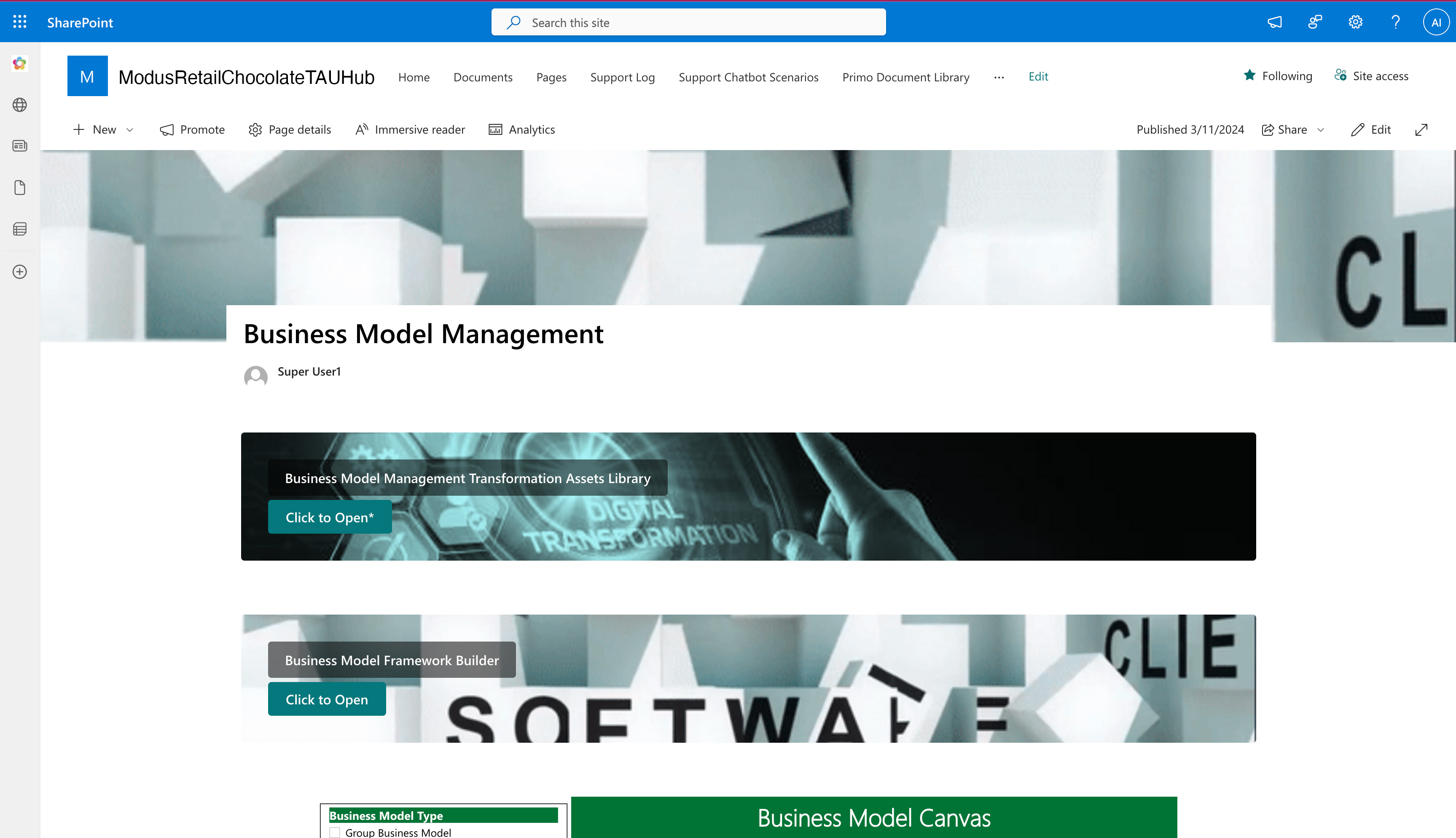
Importance:
• Strategic Alignment: Ensures that all aspects of the retail chocolate business
from production to retail are aligned with broader strategic objectives, such
as premium product positioning or sustainability goals.
• End-to-End Visibility: Provides a clear overview of the entire chocolate
supply chain, helping businesses monitor key processes and improve
efficiency.
• Informed Decision-Making: With real-time data and scenario planning,
businesses can make proactive decisions to address challenges like
fluctuating demand or supply chain disruptions.
• Consistency and Growth: Helps maintain consistent operations across
production and retail channels while enabling scalability as the business
grows.
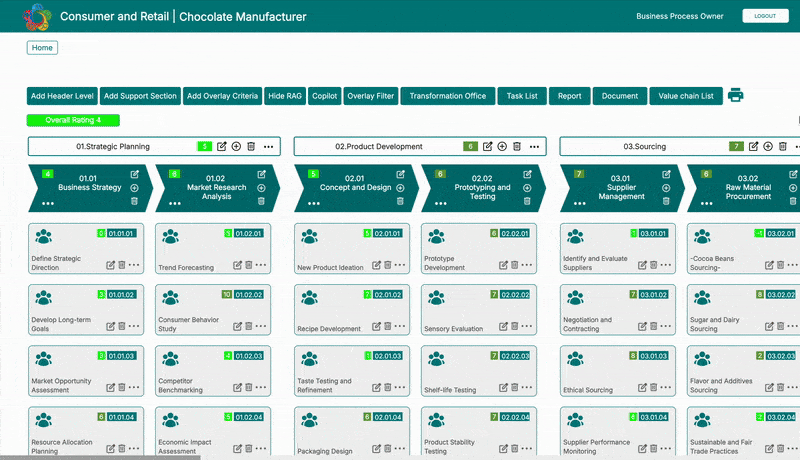
Benefits:
• Improved Supply Chain Efficiency: Enhances the flow of ingredients and
finished products, reducing delays and lowering operational costs.
• Adaptability to Market Changes: Enables quick adjustments to production
and distribution strategies in response to changing consumer demand or
external disruptions.
• Cost Reduction: Optimizes resource allocation across the value chain,
minimizing waste and reducing operational costs, particularly in sourcing and
logistics.
*02 - The Value Chain Modeler - Manage and Adapt
Transform your Retail Chocolate enterprise with the Value Chain Modeler in Modus ETP. Understand, optimize, and grow your business seamlessly.
Key Features:
• Comprehensive Value Chain Mapping: Visualizes the entire chocolate
production process, from cocoa sourcing to product delivery, helping identify
key steps and interdependencies.
• Real-Time Process Tracking: Monitors each stage of the supply chain in
real-time, providing insights into production, inventory, and distribution to
optimize efficiency.
• Scenario Analysis: Simulates different scenarios, such as supply shortages
or seasonal demand spikes, to assess their impact and prepare mitigation
strategies.
Importance:
• End-to-End Visibility: Offers a detailed view of all value chain processes,
helping chocolate retailers maintain control over sourcing, manufacturing,
and distribution.
• Efficiency Improvement: Identifies bottlenecks or redundant processes in the
supply chain, helping streamline production and distribution for faster
delivery and lower costs.
• Risk Management: Prepares businesses for potential supply chain
disruptions by running simulations and developing contingency plans for
risks like ingredient shortages or logistics issues.
*03 - The Operating Model - Organize and Sustain
Transform your retail chocolate enterprise with the Operating Model in Modus ETP. Organize, sustain, and optimize your operations for ongoing success.
Key Features:
• Process Standardization: Establishes a consistent framework for chocolate
production, packaging, distribution, and retail operations, ensuring uniform
practices across the business.
• Live Operating Model: Tracks real-time operations, offering visibility into
current production volumes, inventory levels, and distribution activities.
• Performance Metrics Integration: Monitors KPIs such as production
efficiency, quality control, and sales performance, providing data-driven
insights for operational improvements.
Benefits:
• Increased Efficiency: Streamlines production and distribution processes,
reducing waste and operational costs, while ensuring smooth product flow
from factory to store shelves.
• Sustained Product Quality: Maintains high standards across all stages of
production, ensuring that the chocolate products meet customer
expectations for taste, texture, and presentation.
• Agility and Adaptation: Facilitates quick adjustments to production volumes,
sourcing strategies, or packaging designs based on market trends,
consumer feedback, or supply chain issues.
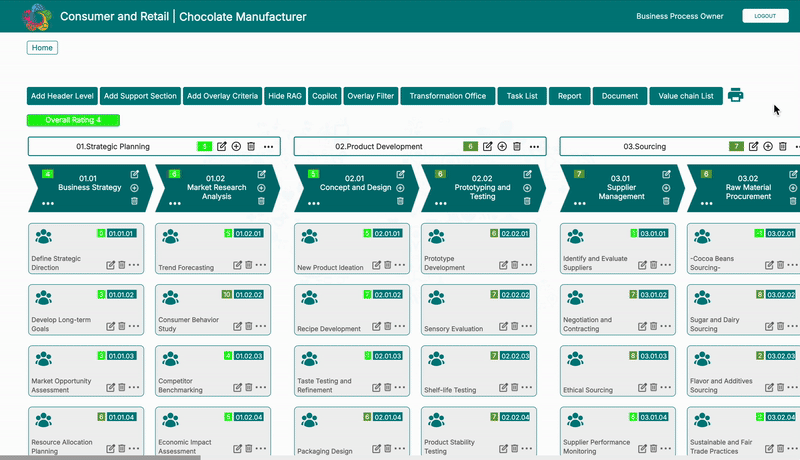
Importance:
• Operational Consistency: Ensures that all departments, from production to
retail, follow standardized procedures, maintaining high quality and efficiency
across the value chain.
• Sustainability Focus: Integrates sustainability into core operations, aligning
with consumer demand for ethical and eco-friendly products in the chocolate
industry.
• Strategic Alignment: Keeps operations aligned with broader business goals,
such as product innovation or market expansion, ensuring the business
grows sustainably.

Benefits:
• Accelerated Innovation: Speeds up the launch of new products or process
improvements by providing pre-configured templates and methodologies,
reducing development time.
• Optimized Resource Management: Ensures efficient allocation of resources
across transformation projects, avoiding bottlenecks and duplication of effort.
• Informed Decision-Making: Real-time reporting and analytics provide
leadership with actionable insights, enabling quicker, more informed
decisions that keep projects on track.
*04 - The Transformation Assets and Portfolio Module - Discover and Transform
By leveraging the Transformation Assets and Portfolio Module, retail chocolate enterprises can discover and transform their operations, ensuring successful execution and delivery of their transformation vision.
Key Features:
• Centralized Asset Repository: Houses all transformation tools, templates,
and methodologies, enabling easy access to essential resources for change
initiatives like new product development or process improvements.
• Portfolio Management Dashboard: Provides a real-time overview of all
ongoing transformation projects, including timelines, resources, and
milestones, ensuring that projects are on track.
• Scenario Planning and Risk Analysis: Allows businesses to model different
transformation scenarios, such as launching new product lines or upgrading
packaging processes, to assess potential risks and outcomes.
Importance:
• Comprehensive Transformation Oversight: Offers full visibility into
transformation projects, from product innovations to operational changes,
helping to prioritize and manage resources effectively.
• Consistency Across Projects: Ensures that all transformation initiatives are
guided by standardized methodologies, driving consistency and quality in
execution across multiple projects.
• Risk Mitigation: Helps identify and manage potential risks by simulating
different scenarios, enabling proactive adjustments to transformation
strategies.
• Value Chain Analysis
• Business Model Analysis
• Transformation Strategy
• Transformation Mobilisation
• Planning Management
• Transformation Log Management
• Financial Management
• Communication Management
• Operating Model Management
• Process Design Management
• IT Design Management
• Build and Test Management
• Implementation Management
• Change Management
• Personal Development Assessments
• Training Management
• Organizational Design Management
• Transformation Review
• Optimization and Governance
5. Organizational Change Management in Modus ETP
Transform your retail chocolate enterprise with Organizational Change Management in Modus ETP. Unite, thrive, and achieve your change goals with confidence.
Key Features:
• Structured Change Framework: Provides a step-by-step approach to
planning, executing, and monitoring changes, such as new product
launches, process improvements, or technology upgrades.
• Role-Based Change Adoption: Aligns changes with specific roles, ensuring
that employees across production, packaging, distribution, and retail are
equipped and trained to handle new processes.
• Impact Assessment Tools: Analyzes how proposed changes will affect
various areas of the business, from sourcing and manufacturing to marketing
and sales, minimizing disruptions.
Benefits:
• Seamless Transition: Facilitates smooth implementation of changes, such as
adopting new packaging technologies or sustainability initiatives, with
minimal operational downtime.
• Higher Employee Engagement: Increases staff involvement and satisfaction
by providing clear communication and support during transitions, reducing
resistance to change.
• Sustained Improvements: Embeds a culture of continuous improvement,
ensuring that changes are not only implemented but sustained over time,
leading to long-term success.
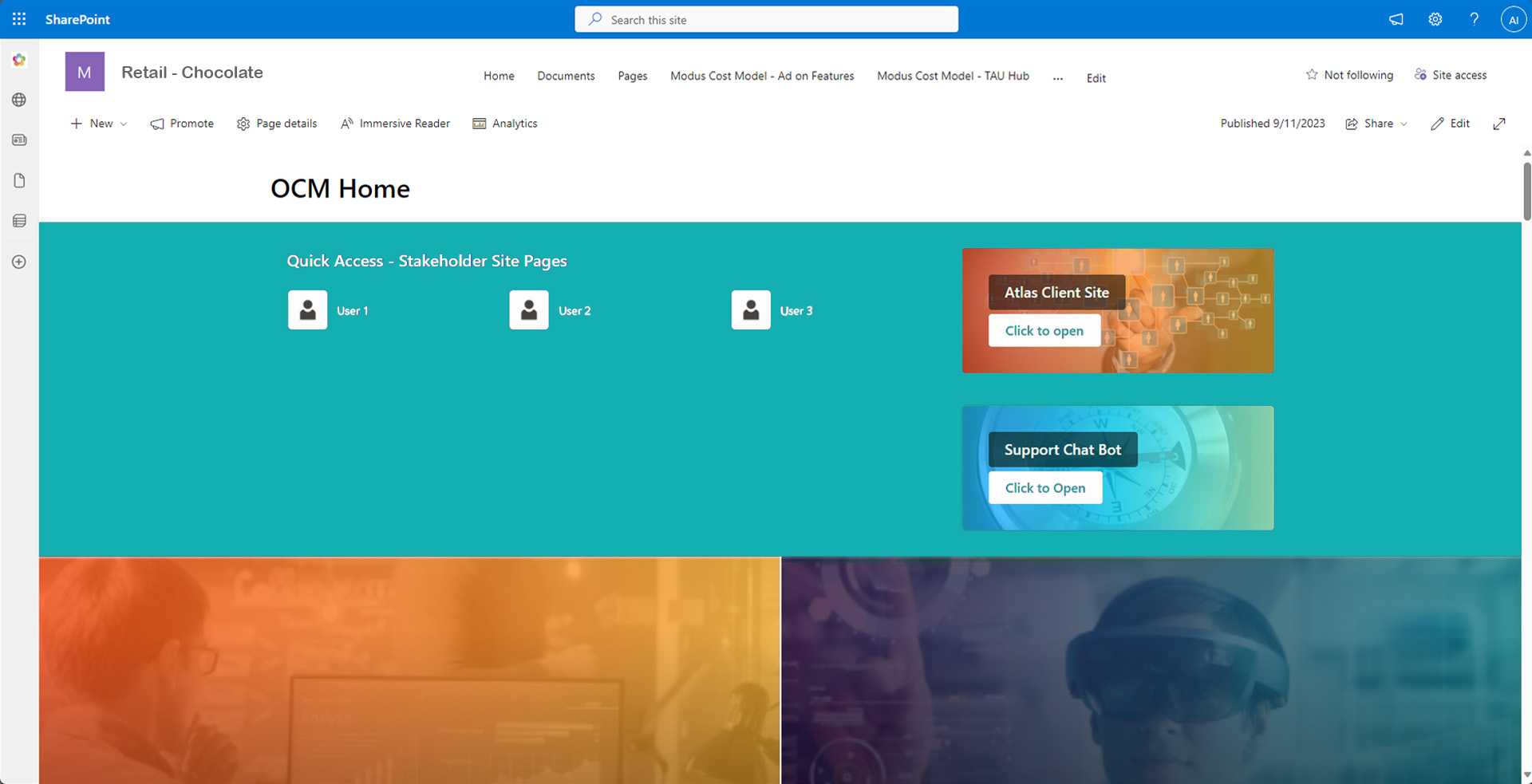
Importance:
• Minimizing Disruption: Guides the business through change initiatives, such
as new product lines or sustainable sourcing practices, ensuring minimal
disruption to daily operations.
• Employee Buy-In: Encourages employee engagement by involving them in
the change process, leading to greater acceptance and smoother
implementation of new practices.
• Consistency Across Operations: Ensures that all departments, from
production to retail, adopt changes uniformly, maintaining operational
consistency and quality.
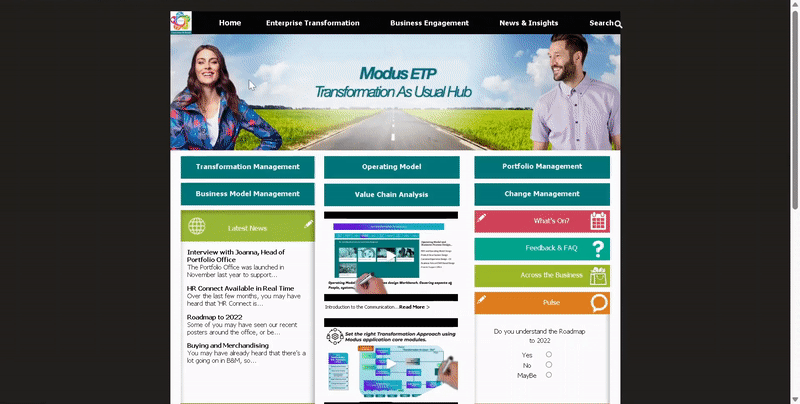
Importance:
• Improved Internal Communication: Ensures all teams, from cocoa sourcing
to retail, are aligned and informed about key business updates, reducing
miscommunication and operational delays.
• Collaboration Across Locations: Facilitates better communication and
collaboration across multiple stores, factories, and departments, ensuring a
unified approach to business strategies like seasonal promotions or product
releases.
• Stakeholder Engagement: Keeps both internal and external stakeholders
(such as suppliers and partners) informed, ensuring that everyone is aligned
with the company’s objectives and timelines.
*06 - Engagement Hub - Share and Guide
Transform your retail chocolate enterprise with the Engagement Hub in Modus ETP. Centralize communication, stay informed, and guide your teams through successful transformations.
Key Features:
• Centralized Communication Platform: Provides a single portal for sharing
updates, guidelines, and information with all teams involved in production,
supply chain, and retail.
• Cross-Team Collaboration Tools: Enables seamless collaboration between
departments such as R&D, production, and marketing facilitating the
coordination of product launches or seasonal campaigns.
• Real-Time Notifications and Alerts: Sends real-time updates and alerts on
important developments, such as production changes, inventory levels, or
marketing promotions, ensuring swift action.
Benefits:
• Centralized Communication: Provides a unified platform for sharing
updates and key information, ensuring all stakeholders stay informed.
• Enhanced Collaboration: Facilitates cross-team collaboration by
offering easy access to shared resources and project data.
• Real-Time Guidance: Offers up-to-date guidance and resources,
helping teams navigate transformation processes more efficiently.
Transformation As Usual Capability Model
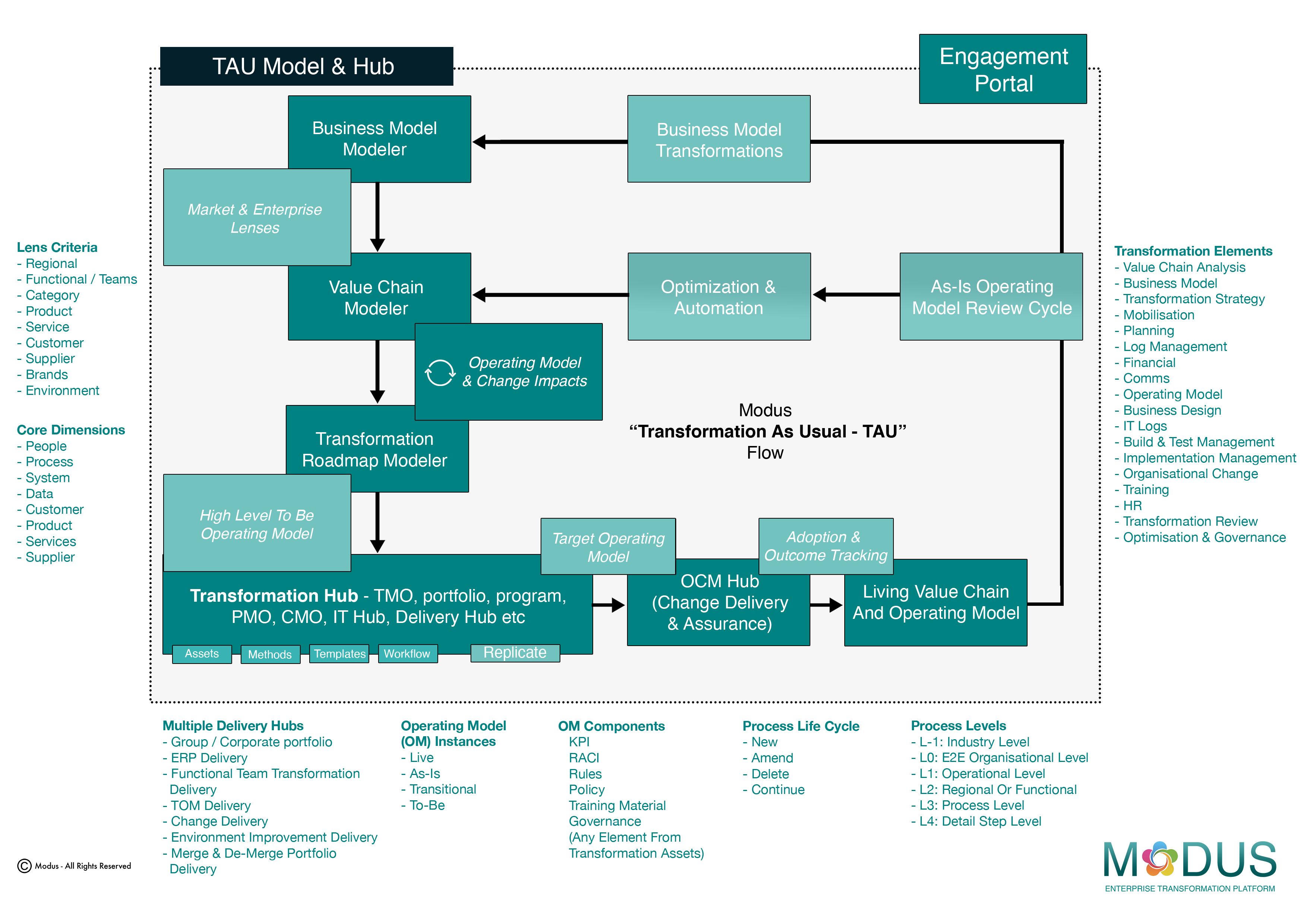
Individual and Team Capability Development
